CRIMINAL Investigation Command special agents frequently respond to and investigate terrible crimes-suicides, homicides, child abuse, sexual assaults, even multiple shootings, such as the Fort Hood, Texas, shooting last year-and their regular exposure to trauma can take its toll.
In fact, law enforcement officers in general have higher rates of alcohol abuse, divorce, domestic violence and anger-management problems, according to Donna Ferguson, the course manager and branch chief for the Critical Incident Peer Support course at the U.S. Army Military Police School at Fort Leonard Wood, Mo.
'It was because our civilian law enforcement was exposed to critical incident stressors, trauma-critical incident being an incident where they're exposed to the point that they're unable to cope during or following an incident, or unable to handle it psychologically,' Ferguson said.
'We did the research, probably about six or seven years ago. We went to the commandant and said, 'We're not concerned about our MPs today. But within three to five years, we're going to have some potential problems with our agents, with our MPs, with our correctional personnel,'' she said.
'Unlike some other MOSs, on and off the battlefield we have a true mission, whereas if you're infantry or field artillery, you have a deployed mission and when you come off a deployment, you...go back into training.
'But our agents can't do that. Our agents are agents in the field on a deployment and also in a garrison. In a deployed environment, they're responding to life-threatening incidents. If they're in a garrison environment, they're responding to suicides...to child death cases, domestic violence cases where there've been horrific incidents, traffic fatalities,' Ferguson continued.
'Many special agents may never have a problem, but stress and trauma from these cases has the potential to lead to post-traumatic stress disorder and even suicide. Ferguson explained that this is in a small percentage of cases, however, and that it's important not to ignore many other symptoms that can result, including addiction, insomnia, depression, divorce, violence, illness, professional problems and burnout.
'One of the things I always tell them,' she said, 'is that their response to trauma, they see it as abnormal, when really, it's a normal reaction to an abnormal situation. It's not them who's the problem, it's the trauma that they see.''
Not every person will respond the same way, she cautioned, adding that 'no reaction' is still a reaction, and symptoms may show up days or even weeks later. Ferguson helped develop the CIPS program, a peer-based support program that teaches agents to help each other in the immediate aftermath of a trauma.
'The training is included in leader-development courses at USAMPS for a day or half a day, and many agents go back to their home station and request a full course. Ferguson sends trainers and materials to the units, based around the units' schedules, to maximize the number of attendees, and she and entire teams have deployed to help after major tragedies. They went to Fort Hood, for example, and even spent a month in Iraq last summer to help a unit that had faced a number of tragedies.
'A debriefing...takes the trauma and brings it down where they understand,' Ferguson said. 'If you've got five to seven people who respond to an incident, each person sees something different. What will happen to one, is that they might be angry. Another might be sad. Another might be frustrated.... (It) takes them through a psychological process that they don't even realize is happening. Even though every agent on the scene knows each other, they sit down and the de-briefer will say, 'Tell me what your role is.' 'Well, I was the first responder on the scene. I got the call from the MP desk....' First thing you do is restore all the facts of the case....
'Then you begin to ask them the question of what's happening right now: 'What are some of the emotions that you feel right now' How did you feel on the scene'' And you deal with that because usually, whatever their worst thought was, is what their nightmares are.... And then you deal with their signs and deal with their symptoms and then you start to bring them back. Now it makes sense to them,' she continued.
'CIPS also focuses on coping skills and communication. Ferguson said that many people, when trying to comfort someone, would tell that person not to cry, but that it's far better to let them feel emotion and simply support them.
'The program is not a replacement for either psychological or spiritual counseling, she cautioned, but it can be an important bridge that gives special agents the push they need to get additional help. Often by the time they get professional help, it's too late and the problems are chronic and will take much longer to resolve, so CIPS is a form of early intervention. Or it may be all the help they need.
'It is saving lives,' Ferguson said. 'We get phone calls all the time from investigators and agents, from MPs, whether in theater or in the garrison...who say, 'This course changed my life. I understand now. I get it. You helped me....' Or Soldiers calling to say, 'Hey, I'm going to behavioral med. I just need to say thanks because it's tearing up my household if I don't go.'
'CIPS is 'some of the best training out there,' agreed Special Agent Ronald Meyer, the outgoing chief of the Forensics Training Branch at USAMPS. 'For me, there are peers who I talk to and we just kind of share feelings and thoughts. On occasion, I've gone and talked to my chaplain (and) for me, running is a way I cope with some things, but everybody's got to develop a coping skill.
'One of my concerns is making sure the young agents develop the appropriate coping skills to deal with things, and, as a supervisory agent, recognizing those stressors and making sure they receive the proper counseling,' he said.
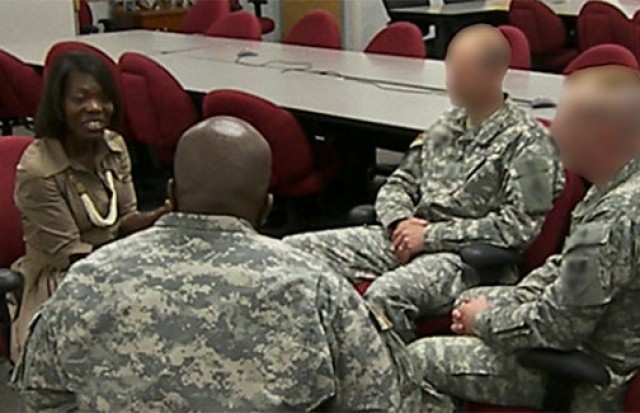
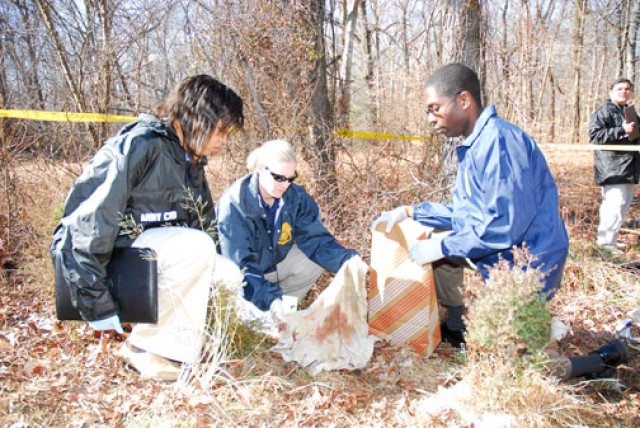
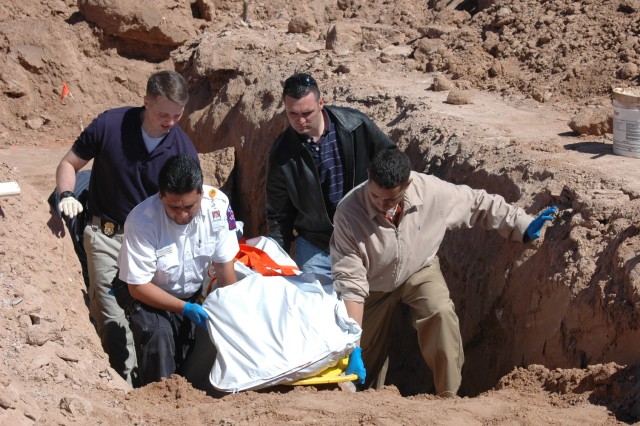
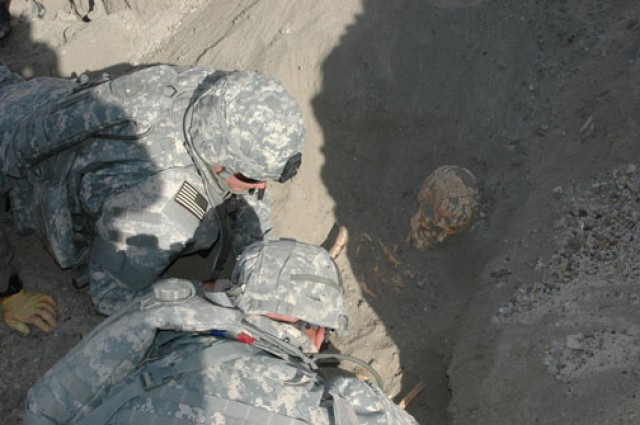

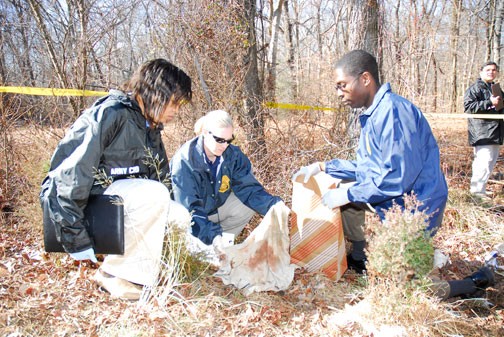

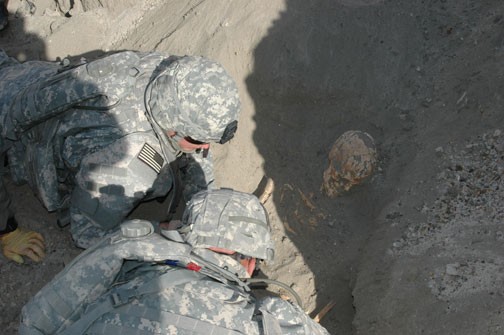
Social Sharing